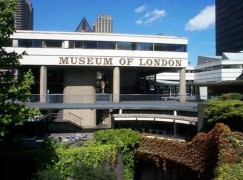London’s new concert hall fails value-for-money test
mainThe first notes of opposition to Simon Rattle’s proposed new hall rallied in The Observer yesterday, following last week’s admonitory post in Slipped Disc. This morning, The Times has picked up the controversy.
Briefly, it’s a question of how much bang you get for a half a billion bucks.
Both Munich and London face the same dilemma. Both have ugly halls with bad acoustics and politicians without the balls to replace them. Now, the UK Government has green-lighted a new hall as part of a deal to bring Simon Rattle to London, but the plan is to build a ‘concrete monster’ in the heart of the City of London on the most expensive slice of real estate on earth. That is not only madness. It’s an insult to the intelligence.
Spend half a billion on a concert hall when hospitals have to shut for lack of nurses, who can’t afford to live in London? And in an area where senior citizens fear to walk after dark. Come on…
Every musician knows that London needs a new hall. But where, and for how much. The solution is to build it outside the Square Mile, in an area where people live, served by good transport links. It needs, moreover, to be designed to look like a great concert hall, not like the Mayor of London’s nuclear bunker. It needs to become an issue in the upcoming mayoral election.
And it must not cost half a billion pounds, or even half as much. I have just been to see a new hall rising in Germany for just 35 million Euros – half of it paid for by citizen donations.
More on that bold experiment in a few days time.






Comments